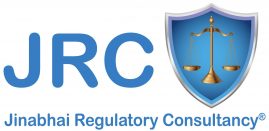JRC offers a range of regulatory services, including:
Experience of sitting on Healthcare Substantive Regulatory Hearings
Making logical, evidence-based findings of fact using the ‘Civil’ Standard of proof
Carefully evaluating of ALL of the available information (e.g. evidence bundles, Expert reports, written and oral submissions, etc.) to make logical, evidence-based findings of fact using the ‘Civil’ Standard (i.e., on the balance of probabilities), where the burden of proof falls upon the Regulator.
Making impartial decisions on whether or not the facts amount to misconduct which is serious
Applying professional judgement to make impartial decisions on whether or not the facts (either admitted or found proved) amount to serious misconduct, based on the parties’ submissions, the legal advice, the relevant case law (e.g., Roylance v. The General Medical Council (Medical Act 1983) [1999] UKPC 16), the regulatory guidance, the Rules and/or Bye-Laws.
Objectively determining whether the Registrant’s fitness to practise is currently impaired
Exercising independent judgement to objectively determine whether the Registrant’s fitness to practise is currently impaired. At this stage of a hearing, it is critical to look forwards and to apply the the following principles:
a) the 3 key questions outlined by Mr Justice Silber in Cohen v GMC [2008] EWHC 581 (Admin), and
b) the advice expounded in CHRE v NMC & Grant [2011] EWHC 927 (Admin), which includes:
i) the 4 key questions from Dame Janet Smith’s 5th Shipman report, and
ii) determining whether or not the need to uphold proper professional standards and conduct, and public confidence in the Registrant and the profession would be undermined if a finding of impairment were not made in the circumstances.
Independently determining the most appropriate and proportionate sanction to impose
In cases where impairment has been determined …
Fairly applying the relevant regulatory guidance, whilst carefully balancing any mitigating and aggravating factors to independently determine the most appropriate and proportionate sanction which protects members of the public and the public interest, whilst also considering the impact upon the Registrant.
Applying the principle of proportionality throughout the decision-making process, by starting with the least restrictive sanction first, and only moving up to the next available sanction if it is determined that the lesser sanction is insufficient to protect the public and/or otherwise fails to meet the public interest.
Where appropriate, to direct a ‘review’ hearing depending on the circumstances of the case
Wherever necessary, for example, in cases where the sanction is a period of conditional registration, to direct that a timely ‘review’ hearing takes place to ensure that the Registrant’s fitness to practise is not longer impaired ahead of returning back to unrestricted practice.
Determining whether or not an ‘immediate order’ is required in the circumstances of the case
While imposing a sanction of either ‘conditional registration’ or ‘suspension’, to determine whether or not an ‘immediate order’ (of conditions or suspension) is required to protect members of the public, or is otherwise in the public interest, or is in the best interests of the Registrant. Each of these factors must be balanced against other interests of the Registrant, which may be to return to work pending the outcome of an appeal.
When making such decisions it is imperative to apply the relevant test, and it is widely recognised that necessity is the appropriate yardstick.
An immediate order might be appropriate where:
• The Registrant poses a risk to patient safety, for example, due to abusing their special position of trust, and/or
• Immediate action is required to protect public confidence in the profession.
Producing a final written determination
Actively contributing to the drafting and finalisation of an impartial, well-reasoned written determination that is presented in ‘lay’ English and is fit for publication in the public domain.
Experience of sitting on Non-Healthcare Substantive Regulatory Hearings
